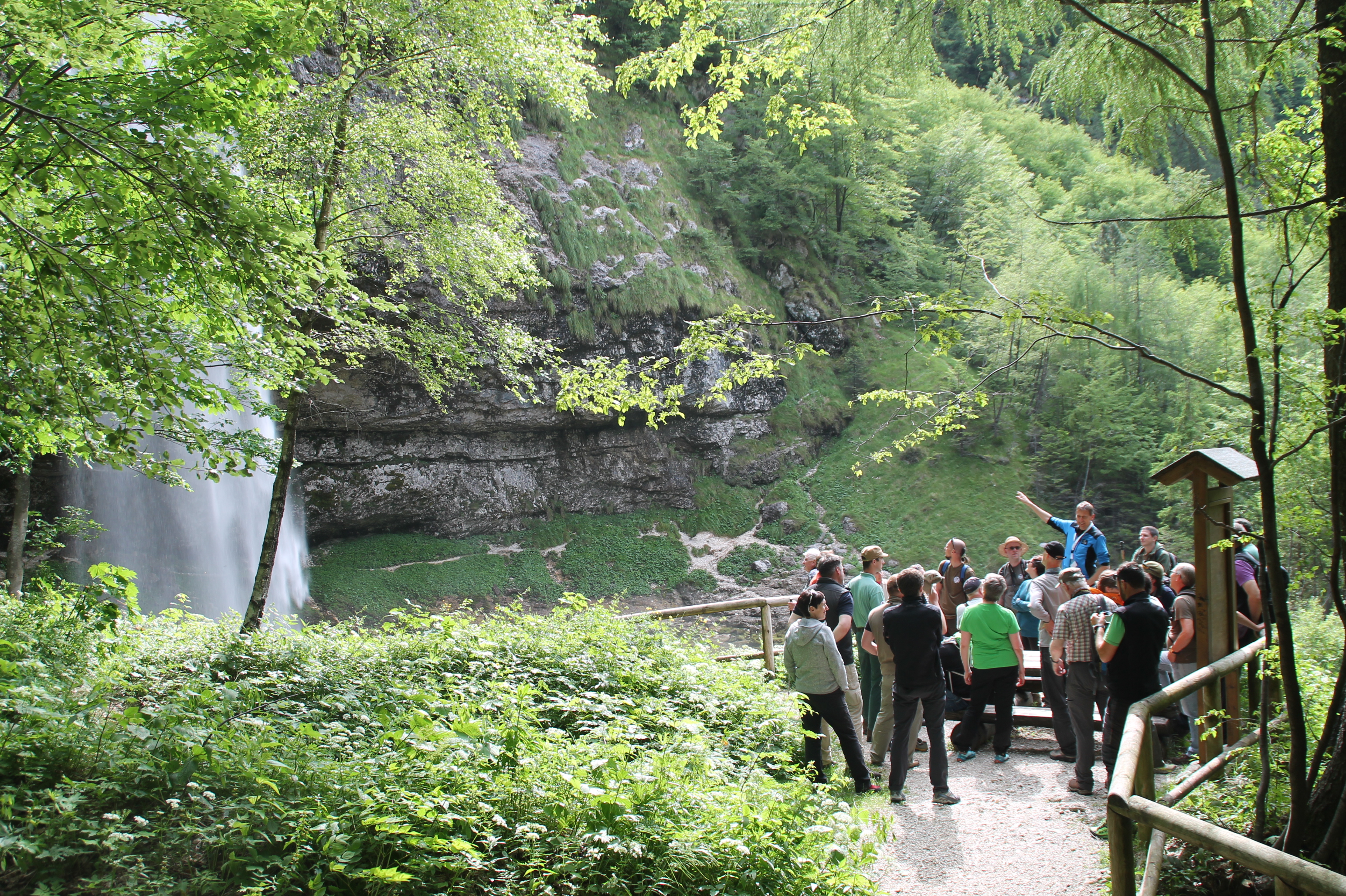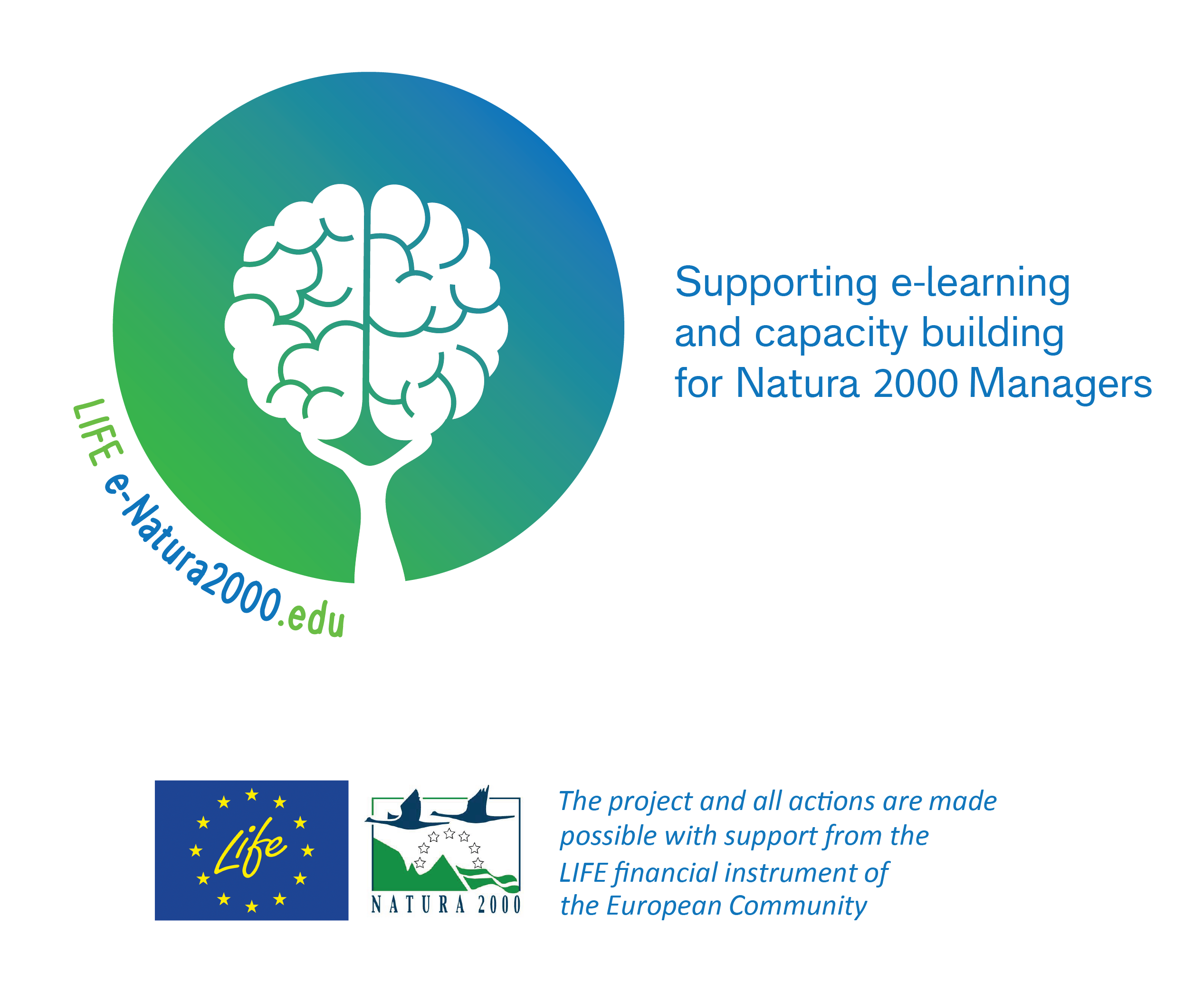As part of the LIFE e-Natura2000.edu project, project partners TESAF (The Department of Land, Environment, Agriculture and Forestry of the University of Padova) and EUROPARC are organising a unique Spring School, “Natura 2000 in practice”.
The Spring School “Natura 2000 in practice”
- Dates: 06-10 April
- Main Avenue: Legnaro, Padova (Italy)
- Field trips to Euganean Hills and Bosco Nordio
- Applications due by 14 February 2020
- participation is free and travel costs covered
You might be one of the 20 professionals from across Europe that will have the opportunity to attend the “Natura 2000 in practice” Spring School. Your participation will help you to develop the competencies and acquire the information you need to work effectively in Natura 2000. You will increase your knowledge about Natura 2000 and build your capacity for your work now and in the future.
The school is co-funded by LIFEedu and the University of Padova Summer and Winter School grant. Costs of participation will be covered up to a maximum of €650 for travel and accommodation to attend the full 5 days of the school. Dinners, lunches and materials during the event will be covered separately.
The lectures will have an interdisciplinary approach, during which active participation will be favoured through discussions and facilitated group-work. Attendees will be able to learn different innovative approaches to tackle the common issues in the management and planning of Natura 2000 sites.
What will you learn?
The main topics include:
– Ecological indicators and conservation measures: with a focus on different approaches towards data and information used at site level to achieve a good conservation status of habitats and species.
– Assessment of habitats types and species: with a focus on the requirements linked to article 17 of the Habitats Directive and the tools and approaches that could be used to achieve the Natura 2000 goals (e.g. setting Favourable Reference Values).
– Pressures and threats: with a focus on identifying impacts to habitats, species and sites and using these to prioritise management.
– Monitoring and restoration: with a focus on fundamental aspects of monitoring terrestrial and freshwater habitats, on the roles of remote sensing and new technologies in nature conservation and on the main aspects when carrying out restoration actions.
– Participating to Natura 2000: with a focus on tools and challenges in using participatory models, meeting local actors, and understanding their perspective.
Who are the lecturers?
Tommaso Sitzia, Thomas Campagnaro, Vito Emanuele Cambria, Riccardo Da Re (University of Padova), Neil McIntosh (EUROPARC), Diego García Ventura (Fungobe), Alina Ionita (ProPark), Clive Hurford (Serapias ecological monitoring consultancy), and Douglas Evans (environmental consultant, retired from the European Topic Centre on Biological Diversity).
How will it be organised?
Outside the classroom…
Two site visits will be organised to the Euganean Hills (site managed by Ente Parco Colli Euganei) and Bosco Nordio (site managed by Veneto Agricoltura) Natura 2000 sites. The context of these two sites includes semi-natural habitats, agricultural and industrial developments, community settlements, and tourism services. This makes for a useful case for the management of Natura 2000 sites. The field visits will function also as a “hands-on” management solutions and will enable attendees to share their experiences and concerns.
At the end of the Spring School, you can expect to be awarded a certificate of participation. Participants are expected to attend all the 5 days. At the end of the Spring School participants will complete an evaluation questionnaire related to the Spring School attendance and will carry out a short final exam to assess learning outcomes.

Field trip in Prealpi Giulie Nature Park (IT) 2017 – TransParcNet Meeting in the Julian Alps Transboundary Ecoregion
Who should apply?
We are looking for people keen to learn about Natura 2000! Our main target are individuals actively working in a Natura 2000 site or for Natura 2000 in some capacity. Whether you work alone or as part of a team, whether you are a Natura 2000 technician, specialist ecologist, ranger or are engaged more in outreach and interpretation, we will welcome applications from men and women of all ages and backgrounds – for example:
- Managers who are working in a Natura 2000 site, either for governmental or non-governmental organisations
- People working in Protected Areas (e.g. national, regional or natural parks) which also include Natura 2000 sites
- Rangers who are working in a Natura 2000 site
- People who work for a local authority or public administration dealing with Natura 2000 sites
- People engaged in volunteer and/ or visitor management in Natura 2000 sites
- People working with local communities in or around a Natura 2000 site
- Providers of information about Natura 2000 (e.g. Communication or Interpretation about Natura 2000 site features)
- Trainees, recently appointed to work on a Natura 2000 site
- Private landowners of a Natura 2000 site (e.g. farmer or forester)
This is an international project so we need people with good standards of English. Our aim is to ensure that we have a representative sample of different types of Natura 2000 managers from different backgrounds – we need a good mix of specialists, rangers, private landowners etc., as well as ages and gender.
Sounds great! What about the costs?
Travel and accommodation costs for participation in the period of the Spring School (i.e. up to a maximum of 5 nights) will be covered by the project up to a maximum of €650 per person. This includes travel, which must be by the most economical means possible and should not exceed €250 per person.
Personal expenses are not eligible for reimbursement. Reimbursement will be based on a signed personal claim form.
IN ALL CASES, reimbursement can only be made when actual costs are evidenced with original receipts and proof of travel documents. Dinners, lunches and materials during the event will be covered separately. The Spring School is also co-financed under the University of Padova International Summer and Winter School (ISWS) programme.
I want to apply!
Applications are due on Friday, 14th February 2020. By mid-February 2020, you will know if you have been selected!
>>>> Apply here <<<<
Subject to demand, there may be one other additional Spring School. We’ll keep you posted!
In the case you have any questions please contact thomas.campagnaro @ unipd.it.
